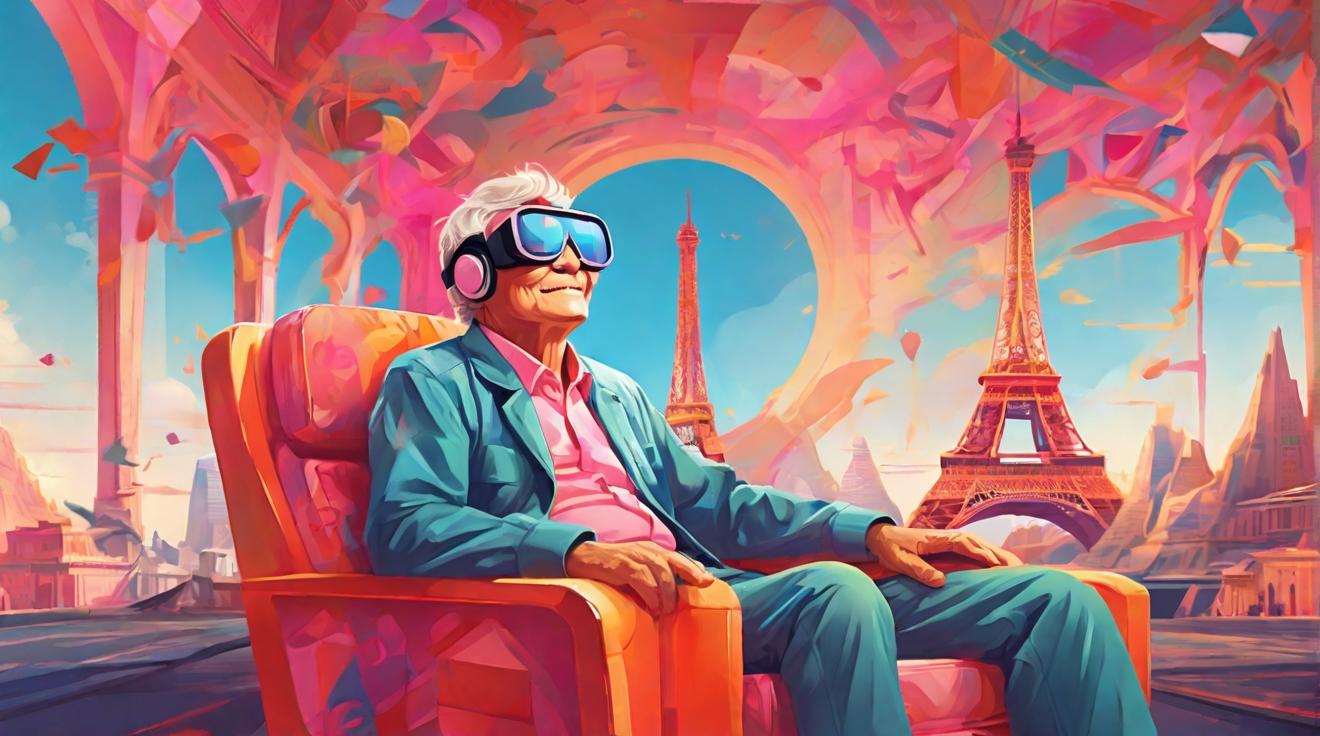Virtual Reality Experiences Offer Aged Care Residents the Chance to Explore the World without Leaving Home
Virtual reality (VR) experiences are providing aged care residents at Barwon Health with a unique opportunity to embark on virtual adventures and explore the world without leaving their homes. This groundbreaking initiative is part of a study aimed at investigating the social benefits of VR for individuals with mild dementia. By engaging in immersive VR experiences, residents have been able to visit renowned landmarks such as the Eiffel Tower and the picturesque Irish countryside, stimulating their senses and fostering social interaction.
Battling Loneliness and Social Isolation
Loneliness and social isolation are prevalent issues among aged care residents, making this study a timely and crucial endeavor. The ongoing pandemic has further exacerbated these challenges, making the need for innovative solutions even more urgent. Collaborating with Deakin University and SilVR Adventures, Barwon Health is striving to address this pressing issue.
A Shared Experience
Dr. Vanessa Watkins, a key researcher from Deakin University, highlighted the use of multiple headsets during group sessions. This approach creates a shared experience that allows residents to reminisce and forge connections through common memories, potentially benefiting those with mild dementia. By fostering engagement and interaction, VR technology has the potential to combat the feelings of isolation and enhance residents' overall well-being.
Enthusiastic Reception
Janette Purcell, a lifestyle officer at Alan David Lodge, expressed the residents' enthusiasm for the VR sessions. Exploring both contemporary and familiar landscapes through VR has captivated their imagination and allowed them to embark on virtual journeys. While there has been a learning curve in adapting to the new technology, the immersive nature of the experience has been overwhelmingly positive.
Evaluating the Impact
The study is now entering a crucial phase of evaluating the effectiveness of the VR program. Through surveys, interviews, and focus groups involving residents, their family members, and staff members, comprehensive assessments will be conducted to measure the impact of VR technology on residents' quality of life. Barwon Health is also providing training to its staff to ensure they are equipped to continue offering this VR experience as an ongoing program.
A Promising Future
The introduction of virtual reality experiences in aged care facilities represents a promising step forward in supporting and enriching the lives of residents. As the study progresses, the findings will shed light on the potential of VR technology to combat loneliness, foster social interaction, and enhance the overall well-being of aged care residents. With continued investment and support, this innovative approach could transform the future of aged care and ensure a brighter, more connected tomorrow.
Analyst comment
Positive news. The market for virtual reality experiences in aged care is expected to grow as the positive impact on residents’ quality of life is evaluated and confirmed through surveys and interviews. There will likely be an increased demand for VR technology in aged care facilities, leading to potential growth opportunities for providers in this market.













